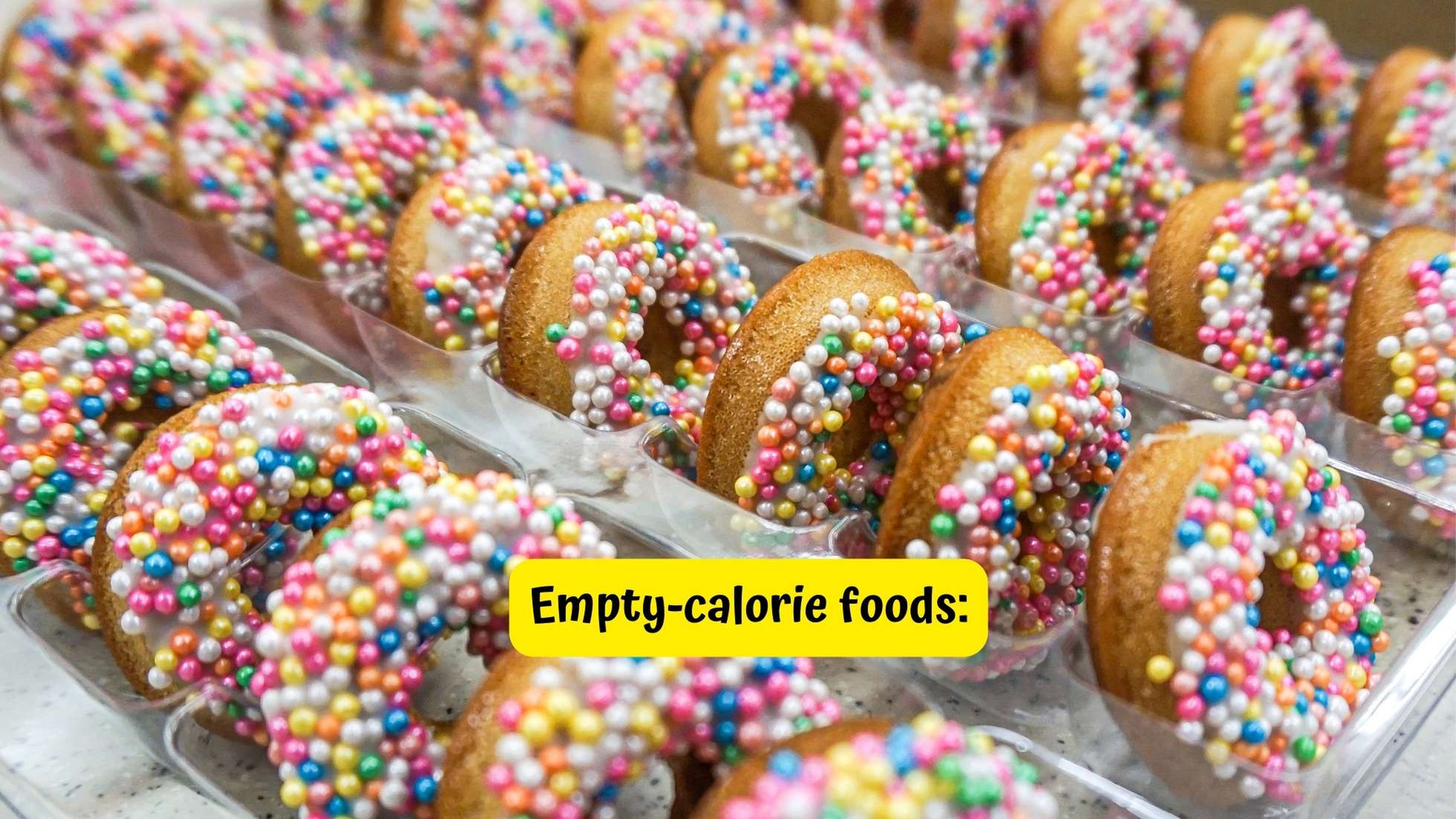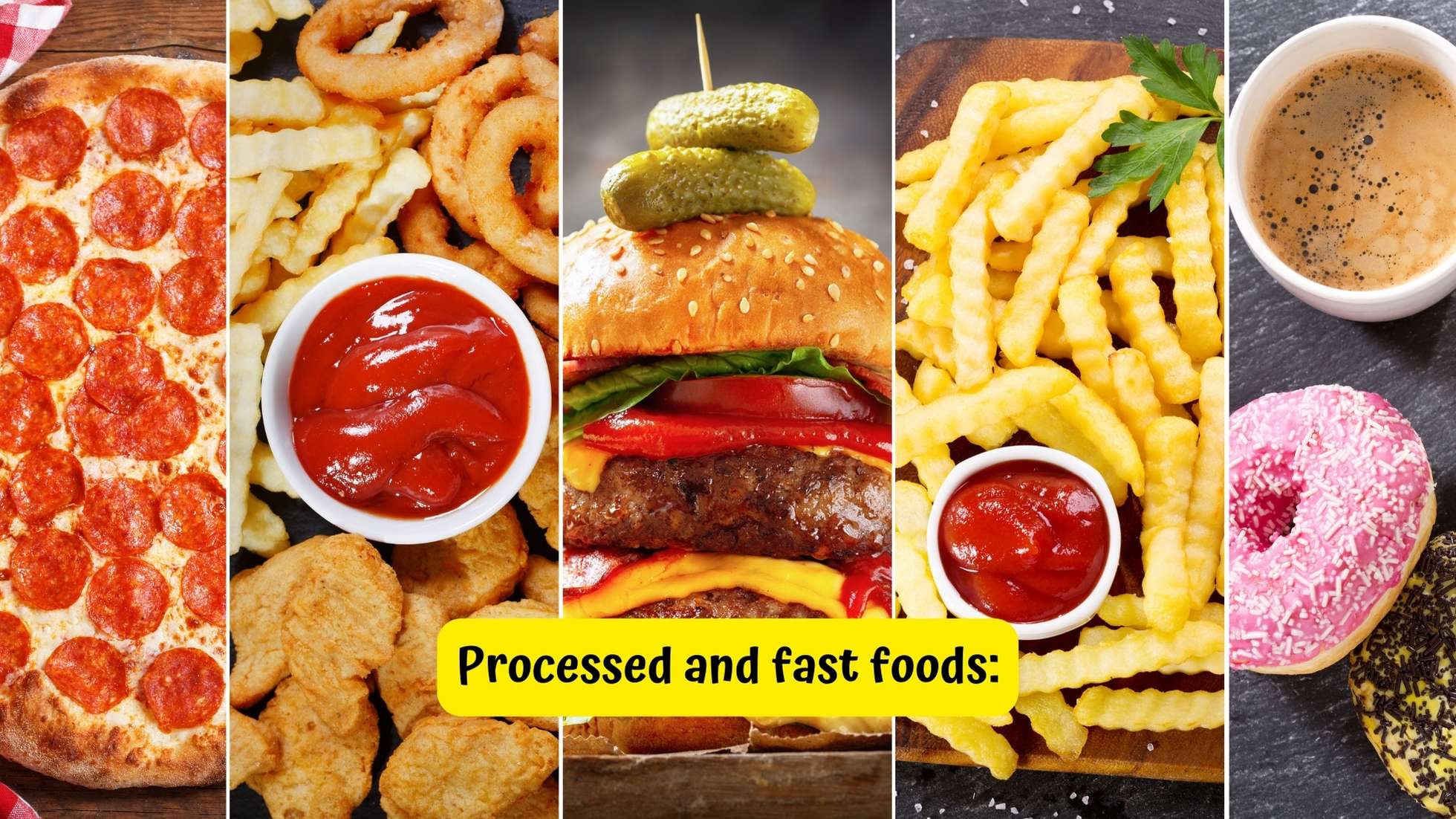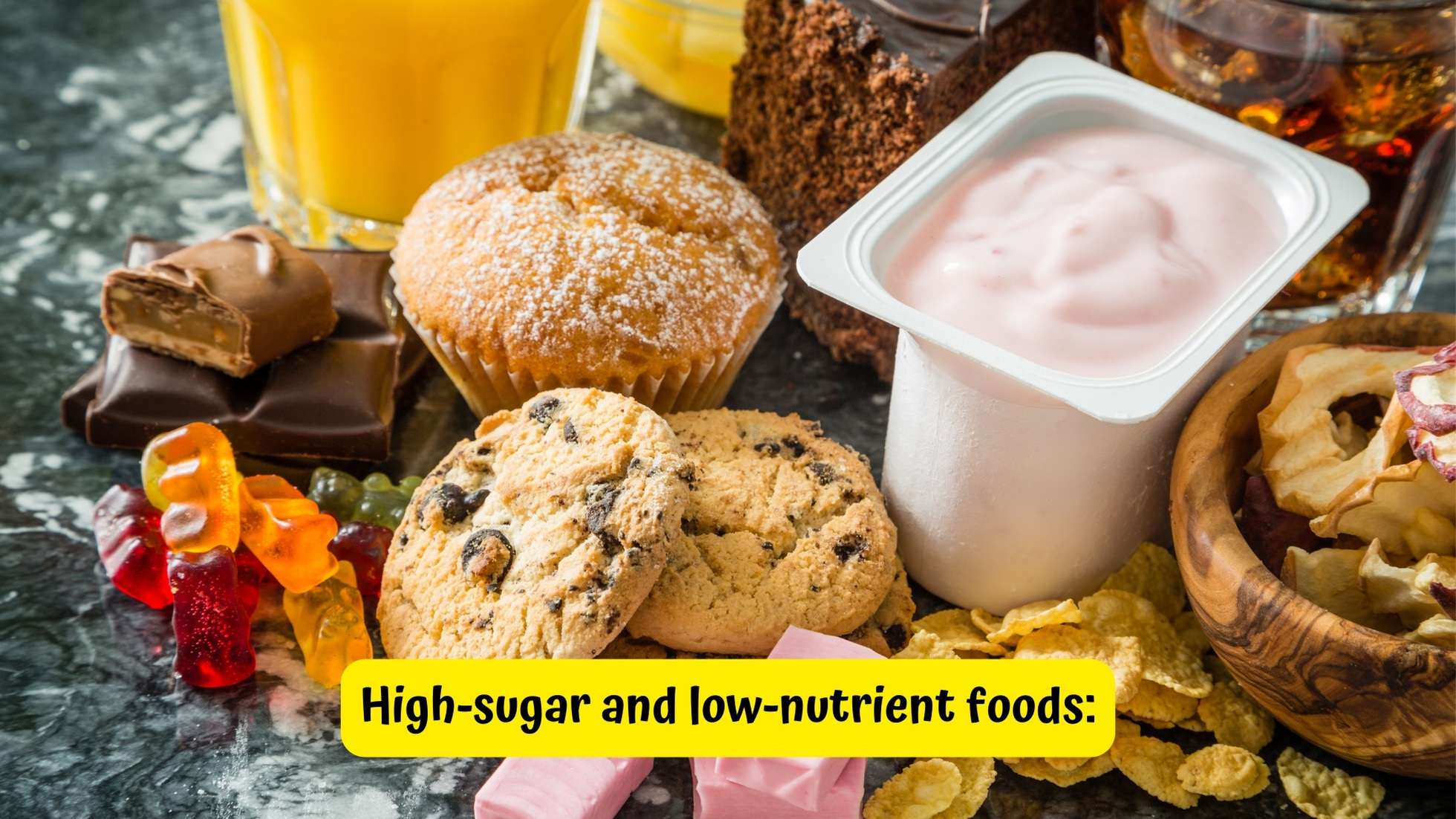Gaining weight can be as challenging as losing it for some individuals. Whether you’re looking to build muscle, recover from an illness, or simply achieve a healthier weight, a well-balanced approach is essential. In this guide, we will explore effective tips for weight gain, a 3000-calorie Indian diet plan, foods to include and avoid, and a 7-day sample meal plan for healthy weight gain. Diet plan for weight gain in 7 days pdf.
How to Gain Weight?
Gaining weight can be a challenging process for some individuals. However, by following a few key strategies, you can effectively work towards your weight gain goals. Here are some tips to help you gain weight in a healthy manner:
- Understand your body’s caloric needs and create a calorie surplus: Determine the number of calories your body needs to maintain its current weight and then aim to consume more calories than you burn. This surplus of calories will provide the energy needed for weight gain.
- Incorporate strength training exercises to promote muscle gain: Engaging in regular strength training exercises can help stimulate muscle growth and contribute to weight gain. Focus on compound exercises such as squats, deadlifts, bench presses, and rows to target multiple muscle groups.
- Prioritize nutrient-dense foods and avoid empty-calorie options: Choose foods that are rich in nutrients and provide a good balance of macronutrients. Opt for lean proteins, whole grains, healthy fats, and a variety of fruits and vegetables. Avoid foods that are high in added sugars and unhealthy fats, as they provide empty calories without nutritional benefits.
- Opt for regular, balanced meals and avoid skipping meals: Aim to have regular meals throughout the day to ensure a consistent intake of calories and nutrients. Avoid skipping meals as it can lead to inadequate calorie intake. Include a mix of protein, carbohydrates, and fats in each meal to support overall health and weight gain.
- Stay hydrated and limit excessive cardio exercises: Drinking enough water is essential for overall health and digestion. However, excessive cardio exercises can burn a significant amount of calories and make it more challenging to create a calorie surplus. Focus on moderate-intensity cardio exercises or incorporate them sparingly if weight gain is the primary goal.
Remember that gaining weight in a healthy manner takes time and consistency. It’s important to consult with a healthcare professional or registered dietitian who can provide personalized guidance based on your specific needs and goals. They can help you create a customized meal plan and exercise routine that supports your weight gain journey while ensuring overall health and well-being. To do a fast loss in weight you should follow this, Diet plan for weight gain in 7 days pdf.
Diet plan for weight gain in 7 days pdf
Tips for Weight Gain
Gaining weight in a healthy and sustainable manner requires a strategic approach. Here are some valuable tips to help you with your weight gain journey:
- Increase caloric intake with healthy and balanced meals: To gain weight, you need to consume more calories than your body burns. Focus on consuming nutrient-dense foods that provide a good balance of macronutrients (carbohydrates, proteins, and fats) and micronutrients (vitamins and minerals). Include a variety of fruits, vegetables, whole grains, lean proteins, and healthy fats in your meals.
- Consume more protein to support muscle growth and repair: Protein plays a crucial role in building and repairing muscles. Include high-quality protein sources in your diet such as lean meats, poultry, fish, eggs, dairy products, legumes, and plant-based protein sources like tofu and tempeh. Aim for a protein intake of around 0.8-1 gram per pound of body weight.
- Include healthy fats like avocados, nuts, and olive oil in your diet: Healthy fats are calorie-dense and can help increase your overall calorie intake. Include sources of healthy fats such as avocados, nuts, seeds, and olive oil in your meals. These foods also provide essential nutrients and support overall health.
- Choose complex carbohydrates for sustained energy: Complex carbohydrates provide a steady release of energy and can help fuel your workouts and daily activities. Opt for whole grains like brown rice, quinoa, oats, and whole wheat bread. Additionally, include starchy vegetables like sweet potatoes and legumes for a good source of carbohydrates.
- Eat 5-6 smaller meals throughout the day to avoid feeling overly full: Dividing your calorie intake into smaller, frequent meals can help you consume more calories without feeling overly full. Space your meals throughout the day, ensuring that each meal contains a good balance of protein, carbohydrates, and fats. This approach can also help maintain a steady supply of nutrients for muscle growth and repair.
- Hydrate with calorie-rich beverages like smoothies and milk: Incorporate calorie-rich beverages like smoothies made with fruits, vegetables, yogurt, and nut butter or milkshakes into your diet. These can add extra calories while providing hydration and essential nutrients.
- Engage in resistance training to build muscle mass: Strength training exercises are essential for stimulating muscle growth and increasing overall body weight. Incorporate compound exercises like squats, deadlifts, bench presses, rows, and overhead presses into your workout routine. Aim for 2-3 strength training sessions per week, allowing adequate rest and recovery between sessions.
- Monitor your progress and make adjustments as needed: Keep track of your weight gain progress by regularly weighing yourself and monitoring changes in your body composition. If you’re not seeing the desired results, consider adjusting your calorie intake, macronutrient ratios, or exercise routine. Consult with a healthcare professional or registered dietitian for personalized guidance and to ensure you’re making healthy progress.
Diet plan for weight gain in 7 days pdf
3000 Calorie Indian Diet Plan for Weight Gain
Gaining weight requires a well-planned diet that focuses on calorie-dense foods and balanced nutrition. Here’s a 3000-calorie Indian diet plan for weight gain that provides a variety of nutrient-rich options throughout the day:
-
Breakfast options with healthy carbohydrates and proteins:
- Option 1: Two whole wheat bread slices with scrambled eggs and a glass of milk.
- Option 2: Oatmeal cooked with milk, topped with nuts and fruits, and a boiled egg.
- Option 3: Paratha made with whole wheat flour, served with yogurt and a banana.
-
Mid-morning snacks with nuts or seeds for added calories:
- Option 1: A handful of almonds and walnuts.
- Option 2: Peanut butter on whole wheat bread with a glass of milk.
- Option 3: Trail mix with a combination of nuts, seeds, and dried fruits.
-
Lunch meals with a balance of grains, proteins, and vegetables:
- Option 1: Brown rice, grilled chicken breast, and a mixed vegetable curry.
- Option 2: Quinoa salad with chickpeas, mixed vegetables, and a dressing made from olive oil and lemon juice.
- Option 3: Roti made from whole wheat flour, lentil curry, and a side of spinach and cottage cheese.
-
Afternoon snacks with dairy or fruit-based options:
- Option 1: Greek yogurt with honey and mixed berries.
- Option 2: Fruit smoothie made with bananas, mangoes, yogurt, and a spoonful of almond butter.
- Option 3: Cottage cheese (paneer) grilled with spices and served with cucumber and tomato slices.
-
Dinner choices with a mix of protein, grains, and vegetables:
- Option 1: Baked fish, quinoa, and steamed vegetables.
- Option 2: Whole wheat pasta with chicken, broccoli, and a tomato-based sauce.
- Option 3: Roti, rajma (kidney beans) curry, and a side of sautéed vegetables.
-
Evening snacks to supplement calorie intake:
- Option 1: Vegetable poha cooked with peanuts and served with a glass of buttermilk.
- Option 2: Veggie sandwich with whole wheat bread, avocado, cucumber, and cheese.
- Option 3: Sprouts chaat with a mix of sprouted lentils, onions, tomatoes, and spices.
Remember to adjust the portion sizes according to your specific caloric needs and consult with a healthcare professional or registered dietitian for personalized guidance. Additionally, ensure you are consuming enough water throughout the day to stay hydrated and support optimal digestion and nutrient absorption.
Note: This diet plan serves as a general guideline. Individual dietary preferences, allergies, and cultural considerations may require modifications. It’s always best to consult with a healthcare professional or registered dietitian for a personalized diet plan based on your specific needs and goals.
Food List For Weight Gain
When aiming to gain weight, it’s important to focus on nutrient-dense foods that provide a good balance of macronutrients and micronutrients. Here’s a food list that can support your weight gain goals:
- Protein-rich foods:
- Chicken: Skinless chicken breast is a lean protein source that can be grilled, baked, or sautéed.
- Fish: Salmon, tuna, and other fatty fish are rich in omega-3 fatty acids and protein.
- Eggs: Whole eggs are an excellent source of high-quality protein and healthy fats.
- Lentils: A plant-based protein source that can be cooked into soups, stews, or salads.
- Dairy products: Milk, yogurt, cottage cheese, and cheese provide protein and essential nutrients.
- Healthy fats:
- Avocados: Rich in healthy monounsaturated fats and can be added to salads, sandwiches, or smoothies.
- Nuts: Almonds, walnuts, cashews, and pistachios are calorie-dense and provide healthy fats.
- Seeds: Chia seeds, flaxseeds, pumpkin seeds, and sunflower seeds are nutritious additions to meals and snacks.
- Olive oil: A healthy cooking oil option for sautéing or drizzling over salads and cooked vegetables.
- Complex carbohydrates:
- Whole grains: Brown rice, quinoa, oats, whole wheat bread, and pasta provide fiber and sustained energy.
- Potatoes: Sweet potatoes and regular potatoes offer a good source of carbohydrates.
- Legumes: Chickpeas, black beans, lentils, and kidney beans are rich in protein and fiber.
- Fruits and vegetables:
- Include a variety of fruits and vegetables in your diet for essential vitamins, minerals, and dietary fiber. Examples include bananas, apples, berries, oranges, spinach, broccoli, carrots, and bell peppers.
- Calorie-rich beverages:
- Smoothies: Blend fruits, yogurt, milk, or nut butter to create high-calorie smoothies.
- Milkshakes: Combine milk, ice cream, and fruits for a tasty and calorie-rich beverage.
- Fruit juices: Opt for 100% fruit juices without added sugars to increase calorie intake.
Foods to Avoid During Weight Gain
When focusing on weight gain, it’s important to be mindful of the foods you choose to consume. Here are some foods to avoid or minimize during your weight gain journey:
- Empty-calorie foods:
- Sugary snacks and desserts: Candies, cookies, pastries, and other sugary treats are high in calories but low in nutritional value.
- Sugary beverages: Sodas, energy drinks, sweetened juices, and sugary coffee drinks can add unnecessary calories without providing substantial nutrients.

- Processed and fast foods:
- Fast food meals: Burgers, fries, pizzas, and other fast food items are often high in unhealthy fats, added sugars, and excessive calories.
- Packaged snacks: Chips, crackers, and pre-packaged snacks are typically high in sodium, unhealthy fats, and empty calories.

- High-sugar and low-nutrient foods:
- Highly sweetened cereals: Some breakfast cereals are loaded with added sugars and lack essential nutrients.
- Sugary spreads and toppings: Syrups, chocolate spreads, and sugary toppings can add calories without offering significant nutritional value.
- Sweetened beverages: Flavored milk, sweetened tea or coffee, and sports drinks can contain high amounts of added sugars.

- Low-fat or diet products:
- Low-fat or fat-free foods: Some low-fat or fat-free products may have reduced fat content but can still be high in added sugars and lacking in calories.
- Diet sodas and drinks: Although low in calories, diet sodas and drinks often contain artificial sweeteners and may not provide the necessary nutrients for weight gain.
While it’s important to limit these foods, it’s also crucial to remember that occasional indulgences can be part of a balanced diet. The focus should be on incorporating nutrient-dense foods that support your weight gain goals. Prioritize whole, unprocessed foods that provide a good balance of macronutrients and micronutrients to promote overall health and well-being.
Read More :- Brat Diet Alternatives
Consulting with a healthcare professional or registered dietitian can provide personalized guidance and help create a tailored meal plan that suits your specific needs and goals.
7 Days 3000 Calories Indian Weight Gain Diet
A well-designed meal plan is crucial for achieving weight gain goals. For individuals looking to increase their calorie intake, a 7-day diet plan with 3000 calories per day can provide the necessary fuel and nutrients. This diet plan focuses on balanced combinations of proteins, carbohydrates, and fats, while offering a variety of options to ensure nutritional diversity.
Day 1:
- Breakfast: Two boiled eggs, two slices of whole wheat toast with peanut butter, and a glass of milk.
- Mid-Morning Snack: Greek yogurt with mixed berries and a handful of almonds.
- Lunch: Grilled chicken breast with brown rice, sautéed vegetables, and a side salad.
- Afternoon Snack: Protein shake made with milk, banana, and almond butter.
- Dinner: Baked fish with quinoa, steamed broccoli, and a cucumber-tomato salad.
- Evening Snack: Whole wheat bread with avocado spread and a glass of buttermilk.
Day 2:
- Breakfast: Vegetable omelet made with three eggs, served with whole wheat toast and a glass of milk.
- Mid-Morning Snack: Apple slices with almond butter.
- Lunch: Chickpea curry with roti, mixed vegetable salad, and yogurt.
- Afternoon Snack: Protein bar and a handful of cashews.
- Dinner: Lean beef stir-fry with brown rice and stir-fried vegetables.
- Evening Snack: Greek yogurt with honey and mixed berries.
Day 3:
- Breakfast: Oatmeal cooked with milk, topped with sliced bananas, walnuts, and a drizzle of honey.
- Mid-Morning Snack: Homemade trail mix with almonds, dried cranberries, and pumpkin seeds.
- Lunch: Lentil soup with whole wheat bread, mixed green salad, and a boiled egg.
- Afternoon Snack: Protein smoothie with milk, strawberries, and a scoop of protein powder.
- Dinner: Grilled tofu with quinoa, roasted vegetables, and a side of hummus.
- Evening Snack: Cottage cheese (paneer) cubes with cucumber slices.
Day 4:
- Breakfast: Whole wheat pancakes topped with sliced peaches and a dollop of Greek yogurt.
- Mid-Morning Snack: Homemade energy balls made with oats, peanut butter, and dark chocolate chips.
- Lunch: Brown rice with grilled salmon, steamed asparagus, and a mixed greens salad.
- Afternoon Snack: Banana smoothie with milk, almond butter, and a dash of cinnamon.
- Dinner: Vegetable biryani with raita (yogurt sauce) and mixed vegetable curry.
- Evening Snack: Whole grain crackers with cheese slices.
Day 5:
- Breakfast: Vegetable and cheese omelet with whole wheat toast and a glass of milk.
- Mid-Morning Snack: Mango slices with Greek yogurt.
- Lunch: Quinoa salad with grilled chicken, mixed vegetables, and a lemon vinaigrette dressing.
- Afternoon Snack: Protein shake made with milk, strawberries, and a scoop of protein powder.
- Dinner: Baked sweet potato with black bean chili and a side of steamed broccoli.
- Evening Snack: Apple slices with almond butter.
Day 6:
- Breakfast: Whole wheat bread with avocado slices and a poached egg.
- Mid-Morning Snack: Protein bar and a handful of cashews.
- Lunch: Tandoori chicken with brown rice, grilled vegetables, and cucumber raita.
- Afternoon Snack: Greek yogurt with honey and mixed berries.
- Dinner: Lentil soup with whole wheat bread and a side salad.
- Evening Snack: Cottage cheese (paneer) cubes with bell pepper strips.
Day 7:
- Breakfast: Smoothie bowl made with frozen berries, spinach, almond milk, and topped with granola and sliced banana.
- Mid-Morning Snack: Homemade trail mix with almonds, dried apricots, and sunflower seeds.
- Lunch: Chickpea and vegetable curry with basmati rice and a side of yogurt.
- Afternoon Snack: Protein smoothie with milk, peanut butter, and a scoop of protein powder.
- Dinner: Grilled shrimp with quinoa, roasted Brussels sprouts, and a side salad.
- Evening Snack: Greek yogurt with mixed nuts and a drizzle of honey.
This 7-day 3000-calorie Indian weight gain diet plan incorporates a balance of proteins, carbohydrates, and fats from various sources. It includes a wide range of nutrient-rich foods to ensure you meet your nutritional needs while promoting weight gain. Remember to drink plenty of water throughout the day to stay hydrated. Adjust portion sizes according to your individual needs and consult with a healthcare professional or registered dietitian for personalized advice based on your specific requirements.
Conclusion
Gaining weight in a healthy and sustainable way requires a well-thought-out approach. By following the tips provided and adopting a 3000-calorie Indian diet plan, you can achieve your weight gain goals effectively. Remember to be patient and consistent, and always prioritize nutrient-dense foods and a balanced lifestyle.
- Read More : Is Cinnamon Toast Crunch Healthy?
- Read More :Exciting Kerala Diet Plan for Weight Loss (1200 Calories)
- Read More :Calories in Masala Oats? All You Need to Know
- Read More :9 Amazing Benefits of Phool Makhana (Fox Nuts)
